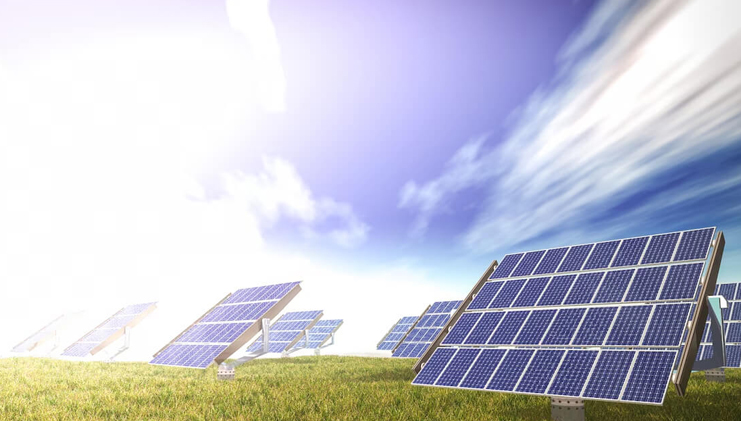
Why use solar panels for electricity needs?
Indeed, food, clothing and shelter are the basic necessities. Electricity has become one, too. Although having access to electricity is a boon, it can be a costly affair. Hence, more and more people are now leaning towards solar power systems. They offer a renewable and environmentally friendly solution to our electricity demands. You can simply harness the power of sunlight through solar panels to generate abundant energy. That, too, without depleting the natural resources or emitting greenhouse gases.
The best thing about using solar energy systems in today’s era is the availability of choices. With options like off-grid, on-grid, and hybrid systems, harnessing solar energy can provide both autonomy and integration with existing power grids.
That being said, here is an outline of 7 reasons why solar energy is the most valuable alternative to traditional sources of power.
1. Solar energy is Eco-Friendly
Solar energy imparts the least amount of harm or negative impact on the environment. This is because solar panels use photovoltaic cells or PV cells that produce electrons in the presence of sunlight to generate direct current or DC. Inverters then convert DC into usable alternating current (AC). This process allows solar panels to harness sunlight efficiently, providing clean electricity for diverse needs.
This process does not produce greenhouse gases and greatly reduces water pollution caused by the process of electricity generation. To put this in context, nuclear power plants require twenty times more water consumption than solar energy. Another major benefit of solar energy as an eco-friendly energy source is the lack of noise pollution. Thus, making it convenient to install in urban areas.
Using more renewable energy sources is crucial for ecological balance and sustainability. Renewable energy sources counter climate change. They also reduce the production of greenhouse gasses and carbon footprint. This can be critical in challenging the climate crisis that we are presently facing.
1. Solar Generated Electricity for Home
Grid power is provided to you by your energy utility provider. But to produce the electricity, these providers use large amounts of coal, natural gas and even water. Thus, making it detrimental to the environment in the long haul and also expensive. Here's how solar power helps:
- Installing rooftop solar panels offers significant cost savings. For instance, you generate electricity on-site, reducing the need to purchase a grid. In turn, you enjoy lower electricity bills for years.
- Electricity prices fluctuate, making it hard to predict expenses. But with solar rooftops, you can easily calculate the cost of power generation and even estimate costs for the next 10 years. Thus, making it a secure investment.
- Solar panels improve energy access, particularly in areas with unreliable electricity supply. Many rural and urban areas in India still lack proper access to electricity. This leads to them relying on expensive and harmful alternatives like diesel generators. Solar energy offers a more affordable and sustainable solution. Thus, reducing reliance on unreliable and costly power sources.
- To promote solar energy adoption, the government provides tax credits to individuals and businesses installing rooftop solar panels. As per the Ministry of New and Renewable Energy, the government offers a subsidy of 30% of the installation cost to the installer.
- Solar panels use sunlight to make electricity, causing less pollution than traditional energy sources. They operate quietly and produce fewer harmful emissions than generators. Plus, solar energy helps fight climate change by reducing carbon footprints, making rooftop solar a green option.
- Rooftop solar panels are highly advantageous because they demand minimal maintenance. With proper care, they can last over 20 years. This is what makes them a durable and reliable investment.
- Rooftop solar panels harness sunlight to generate electricity. India's geographic location provides abundant tropical sunlight. There are nearly 300 sunny days each year and clear skies. Thus, making rooftop solar panels highly suitable.
- One major advantage of rooftop solar panels is their versatility—they can be installed on any type of roof. This eliminates the need to vacate or purchase additional land for installation. Additionally, the panels provide protection to the roof of the building where they are installed.
2. Solar Energy Uses Underutilized Land
Underutilized and barren lands can be some of the best places for installing solar panels. Empty land that cannot be used for agriculture, buildings, or those that are too small for other developmental projects can help when it comes to solar power generation. In that way, solar power helps to:
- Identify underutilized land by locating barren lands, wastelands, fallows or such pieces of land that cannot be used for agricultural or construction processes.
- These lands can either be private property that you can readily access, or you could also seek government permits to work on them.
- Generate immense value from infertile, arid or barren landscapes by installing solar panels
- Make use of limited resources to create the most energy output without any other need for establishing separate plants.
- Solar power can increase the range of clean energy sources in remote areas by utilizing barren lands like deserts, canals, arid and infertile ground or even contaminated soil, which would otherwise have no productive value and would be turned into landfills.
- This makes solar power doubly valuable as it not only generates clean and sustainable energy but also prevents the pollution of otherwise underutilized lands.
3. Reduced Loss of Electricity
Long-distance electricity transmission often causes about 3-5% of energy loss in transit. While long-distance energy transmission can cause loss of electricity and power outages, solar panels generally work around where they have been installed. With less distance between the points of generation and consumption, there is significantly less chance of losing energy. This is achieved in the following ways:
- Solar panels that derive energy from solar radiation are generally installed on terraces.
- A shorter distance between the source of power generation and the user means there is a lesser chance of losing power
- Lesser power loss means less interruption of service
4. Improvised Grid Security
Solar panels can also help make electricity readily available in areas that do not have access to grid power. More spread-out power plants significantly reduce the chance of blackouts and power outages in grids. A grid with a high entry of solar power has thousands of energy production centres spread out across a large area. This improves grid security in case of overloads, electrical hitches, etc., and is a great contributor to electrical safety.
5. A Free and Renewable Source of Energy
Renewability and accessibility increase the value of solar energy. This is because no matter how much solar power is used, it will never be fully depleted. This makes electricity out of solar energy easy to generate with far less environmental collateral damage.
- Since solar energy is free and renewable, it does not require additional resources to create solar radiation.
- It is one of the most reliable energy sources for long-term use because it draws its power from the sun.
- Most of the costs of solar panels are involved in installation, making it highly economical and cost-effective
- The long human history of solar power usage makes innovations in the field easier to chart.
6. Acceleration In Economic Growth With More Jobs
One of the main areas of work regarding solar panels and solar energy production is installation. This is also where most of the cost around solar power generation is constituted. This makes solar power a great job creator for the community.
- Installing solar panels requires a workforce and means of production.
- The process of installing and calibrating solar generators, inverters and PCUs requires skilled labourers and engineers.
- Innovation and development in solar power harnessing create immense research and job opportunities.
- With more local and global jobs, solar energy helps empower the community and its economy.
Summing up
The use of solar energy is not a contemporary phenomenon. Historians have located rudimentary forms of solar cells and panels as early as the 3rd century BCE. There is evidence that the Ancient Greeks and Romans used reflected and amplified sun's rays to light ceremonial torches. Similar usages have been found around 20 AD in Han Dynasty China. It is no wonder that as we developed as a species, civilisation found ways to innovate how we could harness solar power.
EAPL India is a leader in technology and innovations around solar power. Their solar panels can be great sources of renewable energy resources.
Works Cited
2. https://en.wikipedia.org/wiki/Solar_panel.
4. https://www.greenmatch.co.uk/blog/2014/09/7-benefits-of-using-solar-energy

